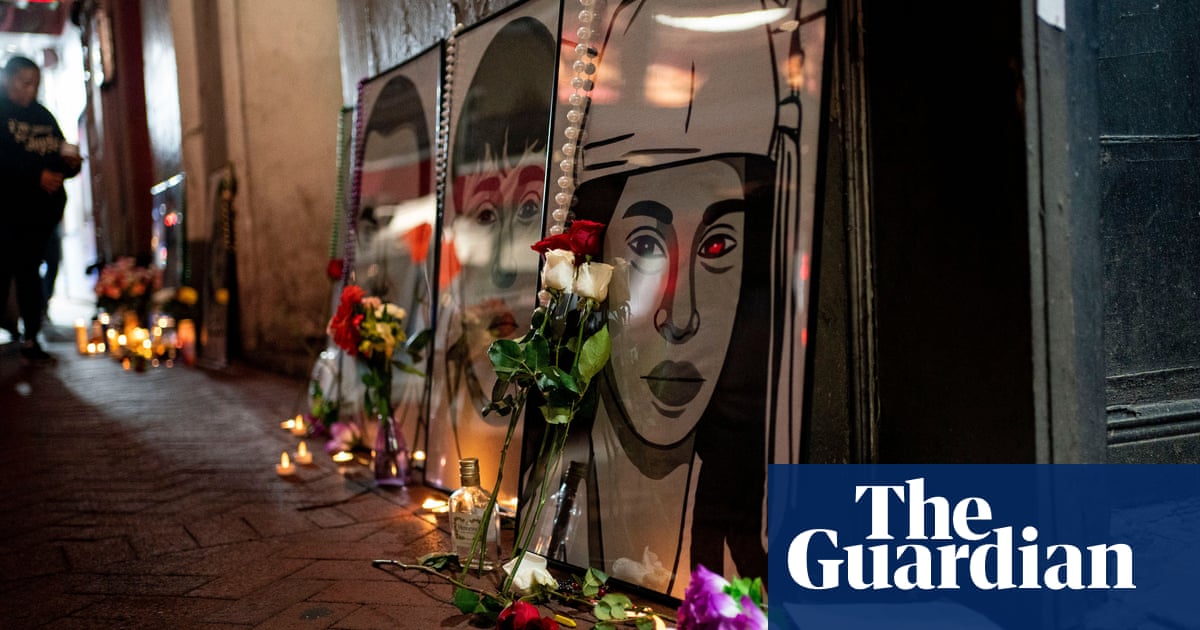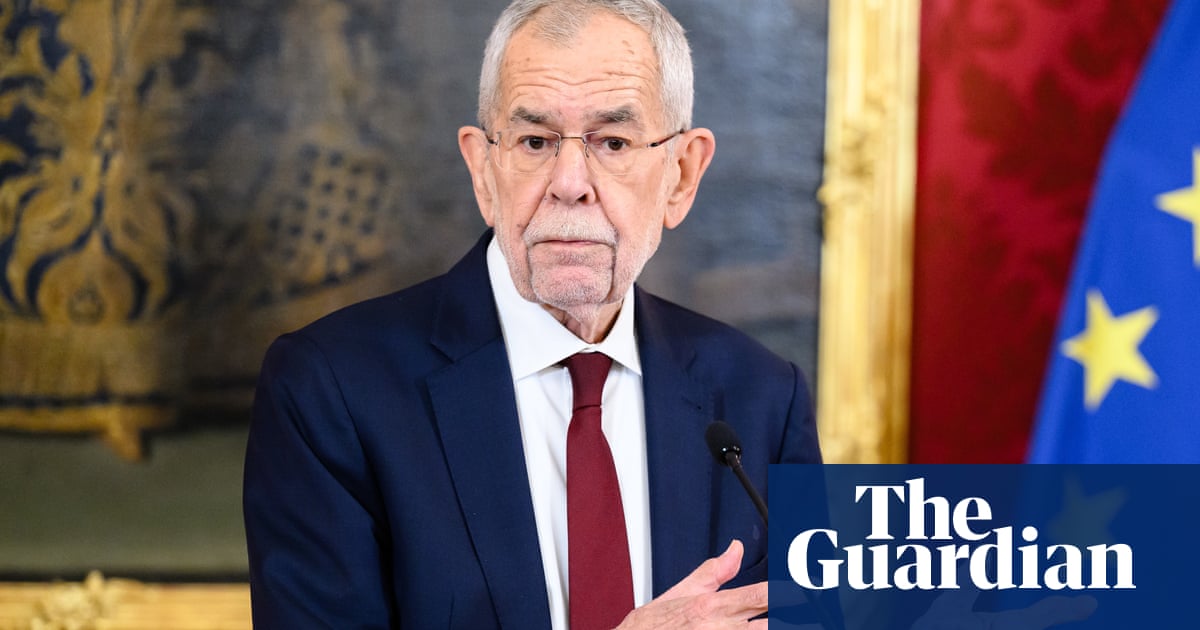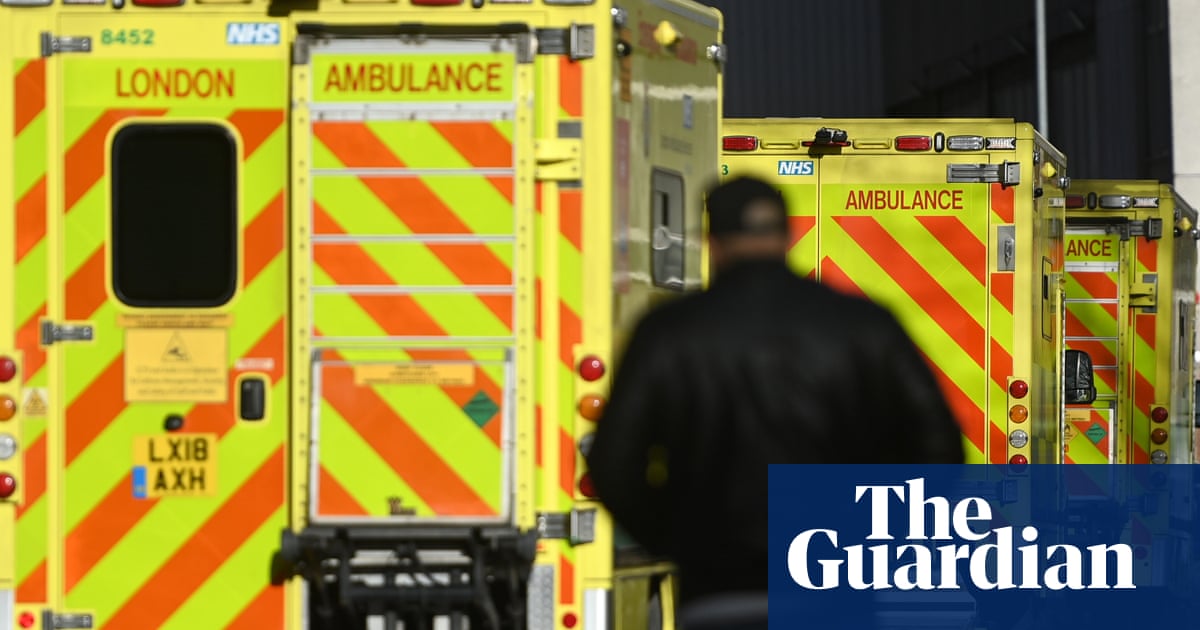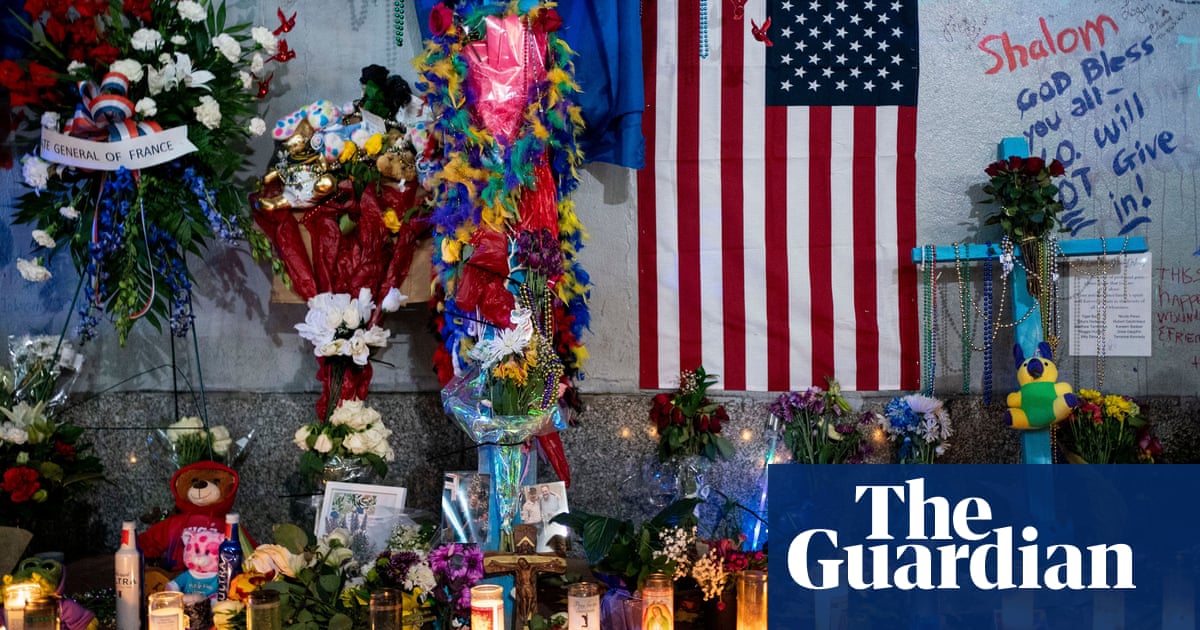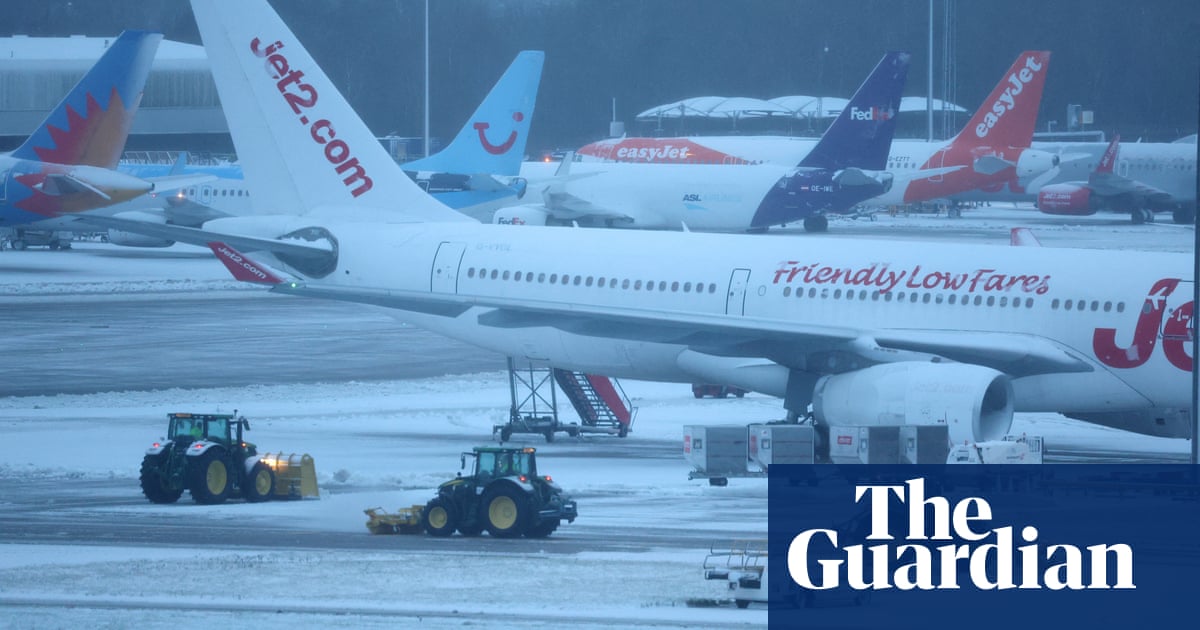Outcry over Israel's 'devastating' decision to ban main UN Palestinian aid agency
As we mentioned in the opening summary, the UN secretary general, António Guterres, has warned Israel’s implementation of a law banning the UN Palestinian refugee agency (Unrwa) from operating in Israel would have “devastating consequences for Palestine refugees”.
“There is no alternative to Unrwa,” Guterres said in a statement.
“The implementation of these laws would be detrimental for the resolution of the Israeli-Palestinian conflict and for peace and security in the region as a whole. As I said before, Unrwa is indispensable.”

Israel’s parliament voted on Monday to ban Unrwa from the country within 90 days, in defiance of US and other international pressure to maintain the largest provider of humanitarian assistance to the country’s Palestinian population.
The Knesset banned the UN agency from conducting “any activity” or providing any service inside Israel, including the areas of annexed East Jerusalem, Gaza and the West Bank. A second vote declared Unrwa a terror group, effectively banning any direct interaction between the agency and the Israeli state.
Unrwa head Philippe Lazzarini called the Israeli decision “unprecedented” and said it was “nothing less than collective punishment” for Palestinians. The bills “will only deepen the suffering Palestinians, especially in Gaza, where people have been going through more than a year of sheer hell”. An Unrwa spokesperson said the law would be a “disaster” and have a serious impact on the humanitarian operation in Gaza and in the occupied West Bank.

The US state department said it was “deeply concerned” by Israel’s move to ban Unrwa, with spokesperson Matthew Miller saying the agency plays a “critical, important role in delivering humanitarian assistance to civilians that need it in Gaza”.
The UK prime minister, Keir Starmer, said Britain was “gravely concerned” the bill had passed, while its foreign secretary, David Lammy, earlier on Monday suggested sanctions could be taken against Israeli politicians if Unrwa was “brought to its knees” by the Knesset’s decision.
The governments of Spain, Slovenia, Ireland and Norway jointly condemned Israel’s ban on Unrwa and said it set a “very serious” precedent for the work of the UN and all organisations of the multilateral system. Belgium said it “deeply regrets” the Knesset’s vote. Germany’s commissioner for human rights policy and humanitarian assistance said the move would be “jeopardising vital humanitarian aid for millions of people”.
Almost all of Gaza’s population of more than two million people are reliant on aid and services from Unrwa, which has provided aid, schooling, healthcare and assistance across the Palestinian territories and to Palestinian refugees elsewhere for more than seven decades. You can read more about the agency’s humanitarian activities and its deteriorating relationship with the Israeli government in this useful explainer on the bill that passed on Monday.
Key events Show key events only Please turn on JavaScript to use this feature
There has been more reaction to Israel’s decision to ban the United Nations Relief and Works Agency for Palestine Refugees, Unrwa, from operating inside of the country.
In a statement, the Turkish foreign ministry said the move aimed to disrupt efforts to reach a two-state solution to the Israeli-Palestinian conflict, adding Unrwa provided vital help to Palestinians.
“It is the legal and moral obligation of the international community to take a strong stance against attempts to ban Unrwa, which was established by a UN general assembly resolution,” the ministry said. “As the chair of the working group on the financing of Unrwa, Türkiye will continue to provide political and financial support to the agency,” it added.
Turkey has been fiercely critical of Israel’s wars in Gaza and Lebanon. It has halted all trade with Israel and applied to join a genocide case against Israel at the World Court.
Meanwhile, Jordan’s foreign ministry said Monday’s vote was “part of the systematic targeting” of Unrwa and a “continuation of Israel’s frantic efforts to assassinate the UN agency politically, in addition to its aggressive war on the Palestinian people”.
Hezbollah elects Naim Qassem, deputy secretary general, as new leader
Hezbollah, the Iranian backed Lebanese militant group, says it has chosen Naim Qassem to replace its former leader Hassan Nasrallah, who was killed in an Israeli airstrike last month.
Kassem, a longtime deputy to Nasrallah, has served as Hezbollah’s acting leader since Nasrallah’s death.
“Hezbollah’s (governing) Shura Council agreed to elect... Sheikh Naim Qassem as secretary general of Hezbollah,” Hezbollah said in a statement.
Beit Lahiya death toll rises to 60, local officials say
At least 60 Palestinian people were killed with 17 others missing under the rubble after an Israeli airstrike hit a residential building in the northern Gaza town of Beit Lahiya on Tuesday, Gaza health ministry official Marwan Al-Hams has told journalists (see post at 07.50 for more details – a death toll of 55 was previously reported).
Outcry over Israel's 'devastating' decision to ban main UN Palestinian aid agency
As we mentioned in the opening summary, the UN secretary general, António Guterres, has warned Israel’s implementation of a law banning the UN Palestinian refugee agency (Unrwa) from operating in Israel would have “devastating consequences for Palestine refugees”.
“There is no alternative to Unrwa,” Guterres said in a statement.
“The implementation of these laws would be detrimental for the resolution of the Israeli-Palestinian conflict and for peace and security in the region as a whole. As I said before, Unrwa is indispensable.”

Israel’s parliament voted on Monday to ban Unrwa from the country within 90 days, in defiance of US and other international pressure to maintain the largest provider of humanitarian assistance to the country’s Palestinian population.
The Knesset banned the UN agency from conducting “any activity” or providing any service inside Israel, including the areas of annexed East Jerusalem, Gaza and the West Bank. A second vote declared Unrwa a terror group, effectively banning any direct interaction between the agency and the Israeli state.
Unrwa head Philippe Lazzarini called the Israeli decision “unprecedented” and said it was “nothing less than collective punishment” for Palestinians. The bills “will only deepen the suffering Palestinians, especially in Gaza, where people have been going through more than a year of sheer hell”. An Unrwa spokesperson said the law would be a “disaster” and have a serious impact on the humanitarian operation in Gaza and in the occupied West Bank.

The US state department said it was “deeply concerned” by Israel’s move to ban Unrwa, with spokesperson Matthew Miller saying the agency plays a “critical, important role in delivering humanitarian assistance to civilians that need it in Gaza”.
The UK prime minister, Keir Starmer, said Britain was “gravely concerned” the bill had passed, while its foreign secretary, David Lammy, earlier on Monday suggested sanctions could be taken against Israeli politicians if Unrwa was “brought to its knees” by the Knesset’s decision.
The governments of Spain, Slovenia, Ireland and Norway jointly condemned Israel’s ban on Unrwa and said it set a “very serious” precedent for the work of the UN and all organisations of the multilateral system. Belgium said it “deeply regrets” the Knesset’s vote. Germany’s commissioner for human rights policy and humanitarian assistance said the move would be “jeopardising vital humanitarian aid for millions of people”.
Almost all of Gaza’s population of more than two million people are reliant on aid and services from Unrwa, which has provided aid, schooling, healthcare and assistance across the Palestinian territories and to Palestinian refugees elsewhere for more than seven decades. You can read more about the agency’s humanitarian activities and its deteriorating relationship with the Israeli government in this useful explainer on the bill that passed on Monday.
Israeli airstrike kills at least 55 Palestinian civilians in Beit Lahiya - reports
Here is a little more detail on the Israeli attack on Beit Lahiya this morning that, according to reports, killed at least 55 Palestinian civilians, many of whom were women and children.
Among the people who were killed included a mother and her five children, and another mother with her six children, according to an initial casualty list provided by the emergency service.
Dr Hossam Abu Safiya, the director of the nearby Kamal Adwan Hospital, said it was overwhelmed by the number of people injured in the bombing who needed treatment.
“The world must take action and not just watch the genocide in the Gaza Strip,” he told Al Jazeera. “We call on the world to send specialised medical delegations to treat dozens of wounded people in the hospital.”
Israeli troops withdrew from the Kamal Adwan hospital on Saturday, after storming the medical facility and detaining dozens of its staff.
Opening summary
Hello and welcome to the Guardian’s continuing coverage of the Middle East crisis amid Israel’s ongoing wars on Lebanon and Gaza.
At least 55 civilians, including children and women, were killed by an Israeli airstrike on the northern Gaza town of Beit Lahiya on Tuesday morning, Wafa, the Palestinian news agency, reported.
Israeli forces targeted a residential building sheltering displaced Palestinians, Wafa reported, adding that more than 20 injured people were taken to Kamal Adwan hospital, which has been hit by “continuous artillery shelling since dawn today”.
Dr Hussam Abu Safia, Kamal Adwan’s director general, told Al Jazeera that many of those injured in the attack died due to lack of resources in the hospital, which has reported dire shortages of fuel and other supplies amid relentless Israeli attacks in the area over recent weeks.
The Israeli military claims the aim of the renewed assault on the north is to prevent Hamas fighters from regrouping there. But the IDF has attacked hospitals and shelters, and food and water are running out thanks to a blockade on aid deliveries and sieges focused on northern Gaza’s Jabalia, Beit Lahiya and Beit Hanoun areas.
In other developments:
-
The UN secretary general, António Guterres, has said Israel’s implementation of a law banning the UN Palestinian refugee agency (Unrwa) from operating in Israel “could have devastating consequences for Palestine refugees” in the occupied territories and that was “unacceptable”. The Israeli legislation is expected to lead to the closure of Unrwa’s East Jerusalem headquarters and would effectively block the delivery of humanitarian aid into Gaza via Rafah in the south. The severing of diplomatic relations would preclude Israel from issuing entry and work permits to foreign Unrwa staff and prevent coordination with the Israeli military to permit aid shipments. The legislation will not come into effect immediately.
-
Unrwa head Philippe Lazzarini called the Israeli decision “unprecedented” and said it was “nothing less than collective punishment” for Palestinians. The bills “will only deepen the suffering Palestinians, especially in Gaza, where people have been going through more than a year of sheer hell”. An Unrwa spokesperson said the law would be a “disaster” and have a serious impact on the humanitarian operation in Gaza and in the occupied West Bank.

-
The Israeli military said a drone that hit the southern city of Ashkelon on Tuesday was launched from Yemen, from where Houthi rebels have mounted a drone and missile campaign in support of Hamas, the Palestinian militant group.
-
Two people were killed in an Israeli strike near Syria’s border with Lebanon, a Syrian war monitor said on Tuesday – the second strike in less than a week near a key land crossing. Israeli warplanes attacked vehicles near Al-Nazariya village in Al-Qaseer countryside along the border with Lebanon, the Syrian Observatory for Human Rights said, adding that two people in the vehicles were killed.
-
At least 60 people were killed and dozens wounded in Israeli strikes on Lebanon’s eastern Bekaa valley on Monday, according to reports. The country’s health ministry said the tolls covered several areas in the Baalbek region as its governor, Bachir Khodr, decried what he called the “most violent” raids on the area since the Israel’s assault on Lebanon was launched late last month. The Israeli military issued an evacuation order on Monday for large swathes of the southern Lebanese city of Tyre. Lebanon’s National News Agency reported “a series of strikes” on the ancient coastal city, beginning with a raid on a residential apartment which reportedly killed at least seven people.

-
About 100,000 Palestinians are trapped in northern Gaza’s Jabalia, Beit Lahiya and Beit Hanoun areas without medical or food supplies, the Palestinian Civil Emergency Service warned. It said its operations had ground to a halt because of the three-week Israeli assault into the northern part of the Strip.
-
Benjamin Netanyahu has denied reports that Israel has received a proposal that would include the release of four hostages in return for a 48-hour ceasefire in Gaza. The statement from the Israeli prime minister’s office came a day after Egypt’s president, Abdel Fattah al-Sisi, said his country has proposed a two-day ceasefire in Gaza which would entail an exchange of four Israeli hostages for some Palestinian prisoners. “If such a proposal were made, the prime minister would accept it on the spot,” Netanyahu’s office said.
-
Israel and Iran have accused each of endangering Middle East peace in a heated exchange at a UN meeting in New York, called after Israel’s Saturday attack on Iranian military targets.

.png) 2 months ago
30
2 months ago
30

